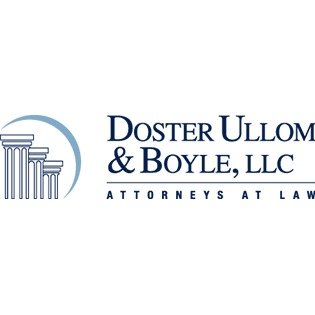Best Guardianship Lawyers in Chesterfield
Share your needs with us, get contacted by law firms.
Free. Takes 2 min.
List of the best lawyers in Chesterfield, United States
About Guardianship Law in Chesterfield, United States
Guardianship law in Chesterfield, United States involves the legal process of appointing someone to make decisions for another person who is unable to make decisions for themselves. This person, typically a minor or someone with severe physical or mental disabilities, is known as the ward. The guardian is authorized by a court order and is responsible for the ward's personal, healthcare, and financial affairs.
Why You May Need a Lawyer
There are several situations where you may need legal assistance in guardianship such as determining whether a guardianship is necessary or in best interests of the ward, navigating the court process in setting up a guardianship, ensuring that the appointed guardian fulfills his or her duties responsibly, or dealing with contested guardianships. Additionally, lawyers can provide advice on alternatives to guardianship and aid in resolving any disputes that arise regarding guardianship issues.
Local Laws Overview
Chesterfield follows the guardianship laws as stated by the Virginia Code, Title 64.2, which specifies when a guardian may be appointed, the roles and responsibilities of a guardian, and how a guardianship can be terminated. For instance, the court may appoint a guardian if it is found that the ward is incapable of receiving and evaluating information effectively or responding to people, situations, or environments to the extent that the individual lacks the capacity to protect the health, safety, or welfare of himself or herself.
Frequently Asked Questions
1. What are the duties of a guardian in Chesterfield?
A guardian may be required to make decisions related to the ward's living arrangements, education, social activities, treatment decisions and may also manage the ward's assets, if there is no separate conservator appointed for financial matters.
2. Can a guardianship be revoked?
Yes, a guardianship can be terminated if the court finds the guardianship is no longer needed or if the ward has regained their capacity. Also, the ward, or a concerned party, can petition the court for the termination of the guardianship.
3. How is a guardian appointed?
A petition must be filed in the local court. Following this, a hearing takes place in which the judge assesses the competency of the proposed ward. If the judge decides the individual needs a guardian, the court will appoint one.
4. Who can serve as a guardian?
A guardian could be any competent adult such as a family member, a friend, or a professional guardian. The court usually gives preference to a relative or friend whenever it is in the ward's best interests.
5. Are there alternatives to guardianship?
Yes, alternatives to guardianship include power of attorney, revocable living trust, representative payee, and advance medical directives. It's important to consider these as they may provide the necessary help without needing a court-appointed guardian.
Additional Resources
The Virginia Judicial System offers an online guide to Adult Guardianship and Conservatorship Proceedings, providing valuable information on the process. The Virginia Department for Aging and Rehabilitative Services also provides additional guidance and resources related to guardianship.
Next Steps
If you need legal help related to guardianship, seek the advice of a lawyer specializing in elder law or family law. You can also approach local legal aid services. It is advised to gather all relevant information such as medical reports, financial records, etc., which might be required during the legal process.
Lawzana helps you find the best lawyers and law firms in Chesterfield through a curated and pre-screened list of qualified legal professionals. Our platform offers rankings and detailed profiles of attorneys and law firms, allowing you to compare based on practice areas, including Guardianship, experience, and client feedback.
Each profile includes a description of the firm's areas of practice, client reviews, team members and partners, year of establishment, spoken languages, office locations, contact information, social media presence, and any published articles or resources. Most firms on our platform speak English and are experienced in both local and international legal matters.
Get a quote from top-rated law firms in Chesterfield, United States — quickly, securely, and without unnecessary hassle.
Disclaimer:
The information provided on this page is for general informational purposes only and does not constitute legal advice. While we strive to ensure the accuracy and relevance of the content, legal information may change over time, and interpretations of the law can vary. You should always consult with a qualified legal professional for advice specific to your situation.
We disclaim all liability for actions taken or not taken based on the content of this page. If you believe any information is incorrect or outdated, please contact us, and we will review and update it where appropriate.








